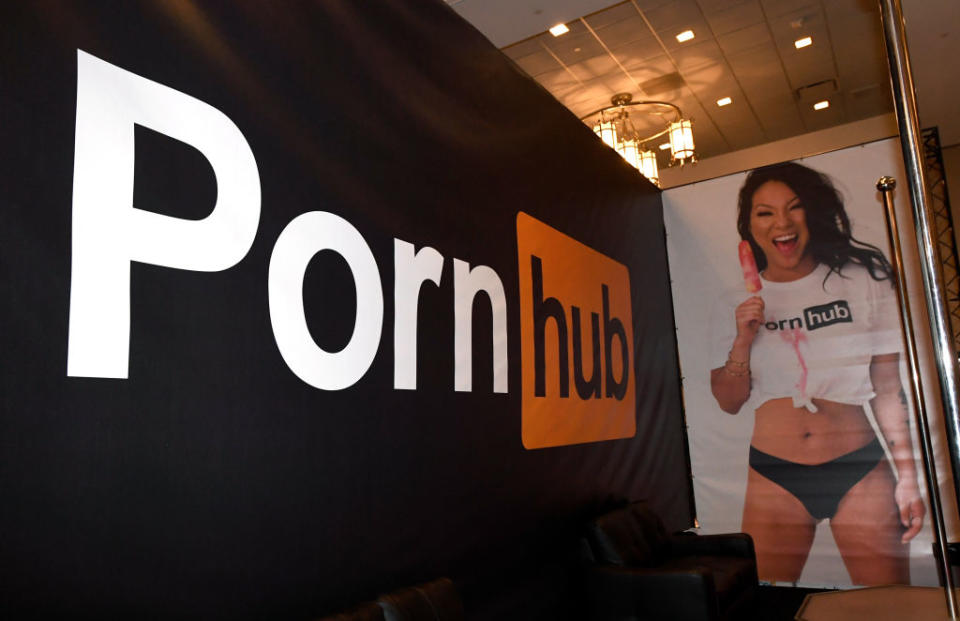'A bad idea': The big problem with the latest internet porn crackdown
Internet users looking to access adult content such as pornography and gambling sites could soon face new obstacles under an ambitious plan being explored by the Australian government.
If all goes according to plan, users of such adult sites will need to prove their identity to verify they are over the age of 18.
In the early days of the consumer internet, the anonymity offered to users was thought to be a great equaliser, but it has been a thorn in the side of governments attempting to replicate the laws and norms of the physical world in the digital one.
The government launched an inquiry into online age verification in September, attracting nearly 200 submissions from stakeholders and members of the public.
A vast majority of the submissions focus on pornography and are broadly supportive of the idea of age verification measures, highlighting the damaging impact highly sexualised videos can have on young minds. But that seems to be the only thing people can agree on.

What’s not so clear is how the government will enact and enforce an age verification scheme that is fraught with technical challenges, jurisdictional limitations and immense enforcement difficulties.
Nigel Phair, director of the NSW Canberra Cyber, is among those who thinks the effort is destined to fail. When asked if the government’s plan was a worthwhile pursuit he didn’t mince his words.
“No,” he told Yahoo News Australia.
“We’ve got to stop looking at technical or legislative solutions.
“There is no silver bullet, if there was some bright person would’ve thought of it and we’d all be using it.”
For example, if a system was in place that required users to create a profile linked to ID documents, as UNSW’s Law Society pointed out in its submission, “effectiveness would be hampered by various circumvention techniques such as the use of VPN services – which would allow internet users to virtually relocate to a country without age verification”.
Fraud control would also be an obvious challenge.
“Youth below 18 years old can simply use the personal details of someone over the age of 18,” the submission added.
Those in support say a system doesn’t need to be 100 per cent effective to justify its introduction, saying the message it sends about the content is important.
“I just can’t see technically how it would effectively work,” Mr Phair said.
“There are 4000 ways you can defeat it quite simply.
“And then it comes down to who curates and maintains a list of approved or non-approved porn sites.”

The ‘dystopian’ idea to use facial recognition
During the parliamentary inquiry, the Department of Home Affairs floated the idea of requiring facial recognition technology to verify people accessing certain sites, which would be cross-referenced with documents already lodged with the department like a driver’s licence.
“This could assist in age verification, for example by preventing a minor from using their parent's driver licence to circumvent age verification controls,” the department said.
Labelled “dystopian” by critics, it is unlikely to come to pass with many citing concerns about browsing data and habits being collected and linked to personal profiles held by the government.
“If that service got hacked, that information could be easily used for blackmail,” Eliza Sorensen, a cyber security expert and board member at Electronic Frontiers Australia – a non-profit group representing Australian internet users, said.
“During the Ashley Maddison hacks, people committed suicide,” she said.
“I can totally see people committing suicide over the leaking over their porn habits.”
Ms Sorensen also runs a site providing resources for sex workers and another which acts as a directory for escort services and holds concerns that the regulation would force such adult entertainment companies out of Australia.
“We do have a local market… we shouldn’t kill it off because the government doesn’t agree with it,” she said.

The Home Affairs proposal sought to piggyback off a separate proposed facial recognition scheme being pursued by the federal government which wants agencies, banks and phone companies to be able to use the technology.
However, a bipartisan security committee recently shot down the proposal over fears it could lead to mass surveillance, telling the government to redraft its plans.
“It’s just a bad idea,” Mr Phair, who worries about the creeping scope of such a policy, said.
“Once you get this database, it’s the scope creep that concerns me,” he said.
Recently introduced laws to collect metadata on citizens went the same way.
“It was supposed to just be for federal agencies and all of a sudden local councils and the RSPCA are accessing it,” Mr Phair said.
Parents warn of exposure to ‘hardcore’ porn
One anonymous woman who filed a submission with the inquiry claimed to be a mother of a 17-year-old girl who required therapy after being shown hardcore pornography in the school playground at a younger age.
“The shock and anxiety this event led to her having suicidal thoughts and is still affecting her and our family to this day,” the anonymous woman wrote.
“Our family believes her mental illness stems directly from this early exposure to pornography. Everything unravelled from that point and she went from being a happy-go-lucky innocent to a confused and ashamed child.”
A 2017 research report by the government’s Australian Institute of Family Studies found nearly half of children between the ages of nine and 16 experience regular exposure to sexual images, and “pornography use can shape sexual practices and is associated with unsafe sexual health practices”.
Those against government enforced age restrictions believe it is the parent’s role to educate their children and employ internet filters to curtail access to adult content.
Ms Sorensen said “there’s a lot of software products out there that parents can use” to block content they don’t want their kids to see, calling it a more “appropriate” and viable solution.
She also cautioned against the overwhelming vilification of the industry.
“As someone who is queer, without the internet and pornography, I wouldn’t have been able to safely identify who I was,” Ms Sorensen said.

‘It seemed to come out of nowhere’
Other countries have sought to implement state-mandated age verification systems.
The UK has long sought to introduce a nationwide age verification system for online pornography but last month abandoned its plan after years of technical troubles and concerns from privacy campaigners.
Portugal has a system in place for gambling websites while Russia has an age verification for adult websites but is routinely circumvented, according to reports.
As a former police officer, Mr Phair was aware of the long debate preceding other internet-based legislation brought by the current government including the metadata retentions laws and encryption busting law, but was surprised by the sudden inquiry into age verification.
“It seemed to come out of nowhere,” he said.
“I don’t know how many people are genuinely concerned about this, is it all of society or just a portion of their (the Liberal government’s) voting base?
“I’ve not seen any evidence that this is out of control.”
He believes a multifaceted approach from the public health industry and educators is the best way to mitigate against the potential harm of pornography access.
Ms Sorensen echoed those calls, saying parenting and education was the only way to trump the technical challenges.
“I would really like the government to try and take a step back … if it goes ahead it will be costly and ultimately a failure,” she said.
Do you have a story tip? Email: newsroomau@yahoonews.com.
You can also follow us on Facebook and Twitter, download the Yahoo News app from the App Store or Google Play and stay up to date with the latest news with Yahoo’s daily newsletter. Sign up here.



